The Minnesota Republican party has developed a suburban problem where they were previously at least highly competitive. Those suburban issues are most prevalent in the west metro which contains some of the more affluent and college educated communities in the Twin Cities. In 2018, Democrats flipped the Third Congressional district. Republican Congressman Erik Paulsen had held the seat since 2009. While the suburban shift was beginning to materialize before Trump, it wasn’t until 2016 at the Presidential level and 2018 at the down-ballot level that those trends accelerated. Just as what happened in other similar districts around the nation such as Virginia’s 10th, Colorado’s 6th and California’s 49th district, Democrats flipped seats that are out of reach now for the GOP until at least Trump leaves office. Of course a trend is only a trend until it isn’t, but there is plenty of evidence to surmise that Democrats are poised to expand their suburban gains again in 2020.
MN-03
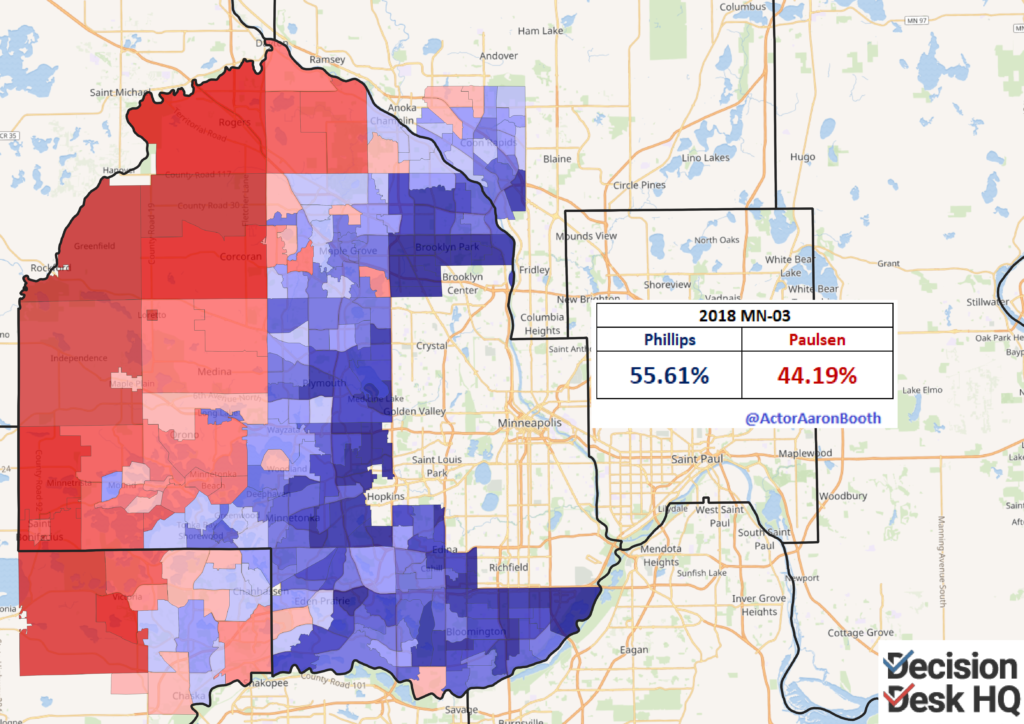
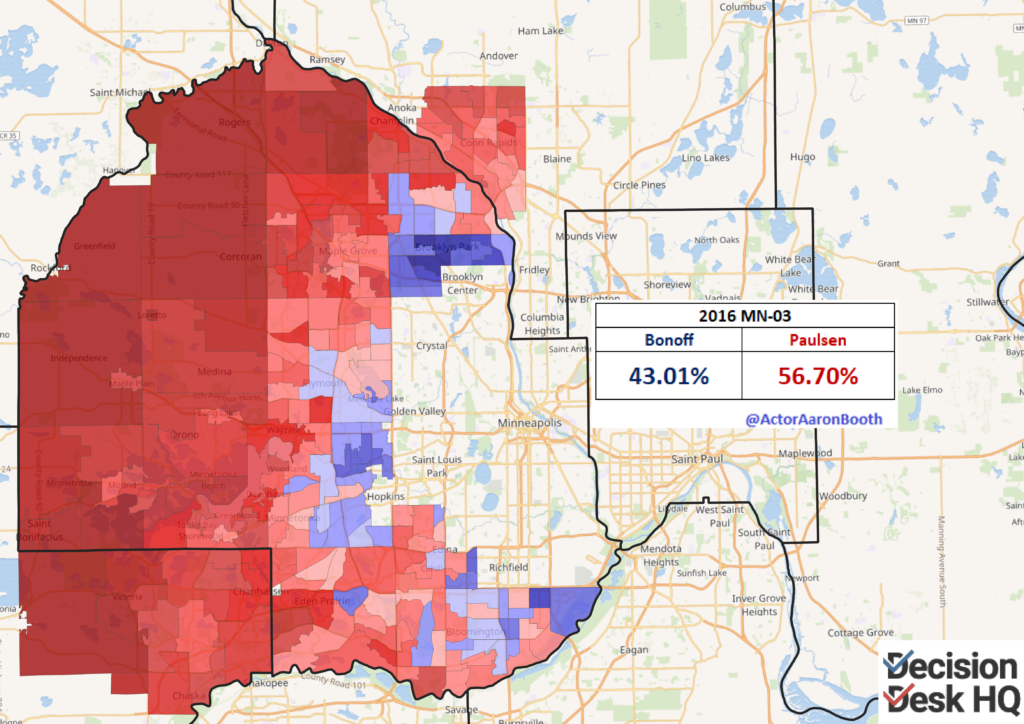
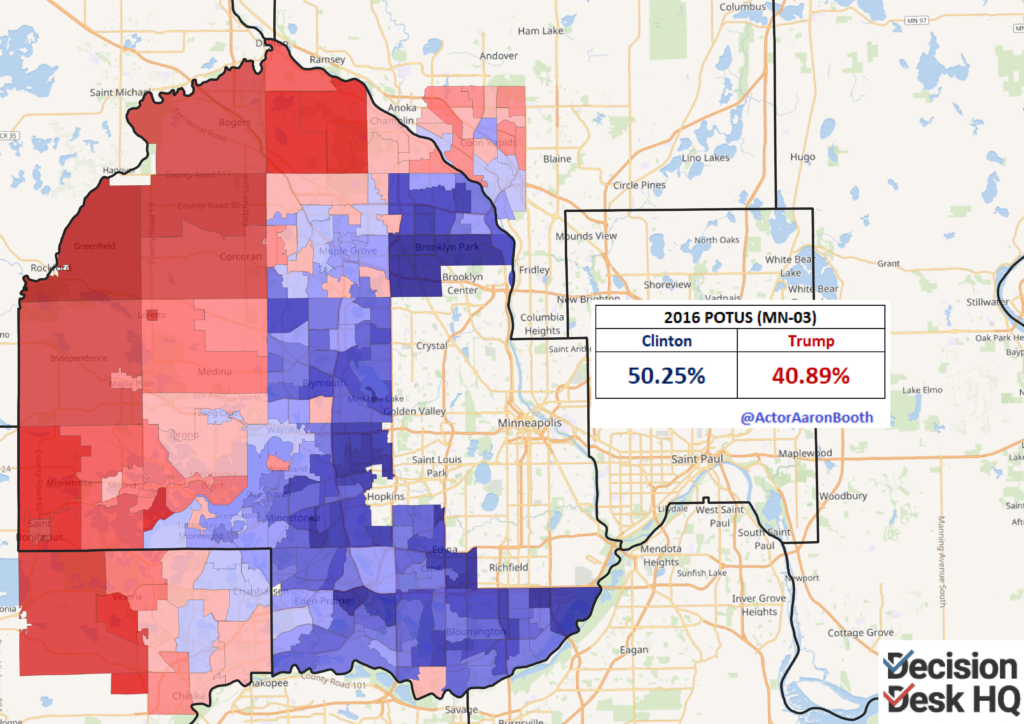
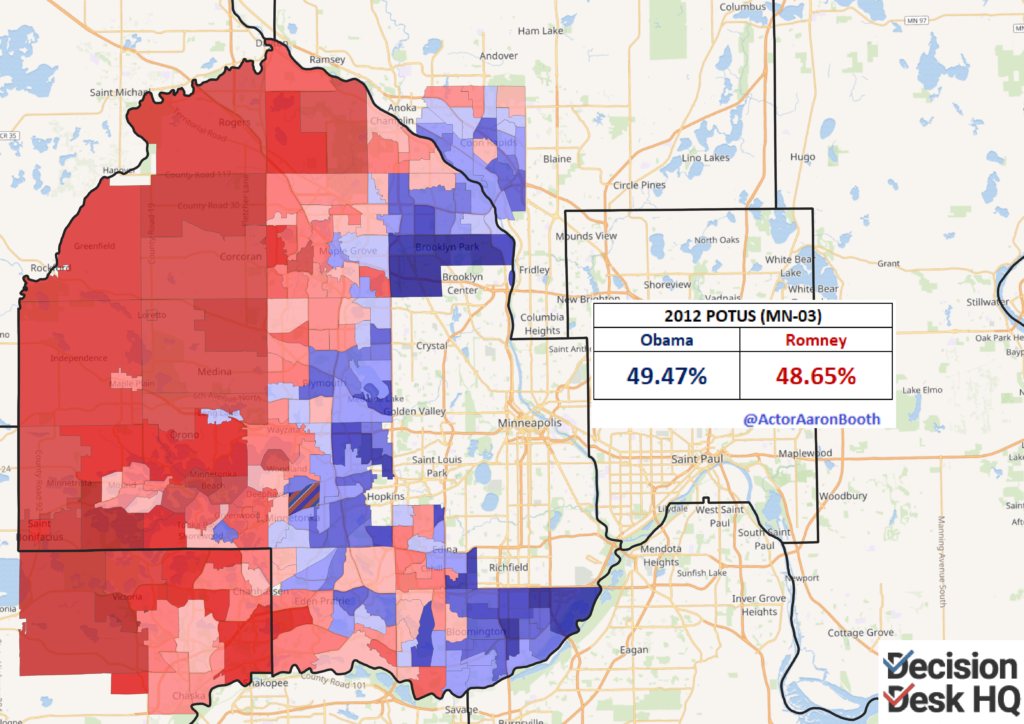
Minnesota’s Third district has drawn minimal interest this cycle due to the expected lack of competitiveness, however it has drawn some considerable spending. Republican Challenger Kendall Qualls raised $695,000 in the third quarter, spent $694,000 and began October with $538,000 cash on hand. While the Twin Cities media market is the most expensive one in the state, it is not on the level of a Houston, Dallas, New York, Miami or Chicago. Incumbent DFL Congressman Dean Phillips raised a similar $678,000 in the third quarter, spent $512,000 and began October with $633,000 cash on hand. In total this cycle, Phillips has raised $2.17 million and spent $1.57 million while Qualls has raised $1.59 million and spent $1.05 million. Based upon money alone, this race should be competitive. Factoring in incumbency, past results and trends and how Biden is expected to perform in the district, it’s hard to see this being anything other than a double digits race.
Some outside money also entered the race again this week with the NRCC and the Qualls campaign placing a new coordinated ad buy attacking the incumbent. According to a Minnesota GOP press release, the size of the ad buy is for 200 gross rating points.
State Senate District 44
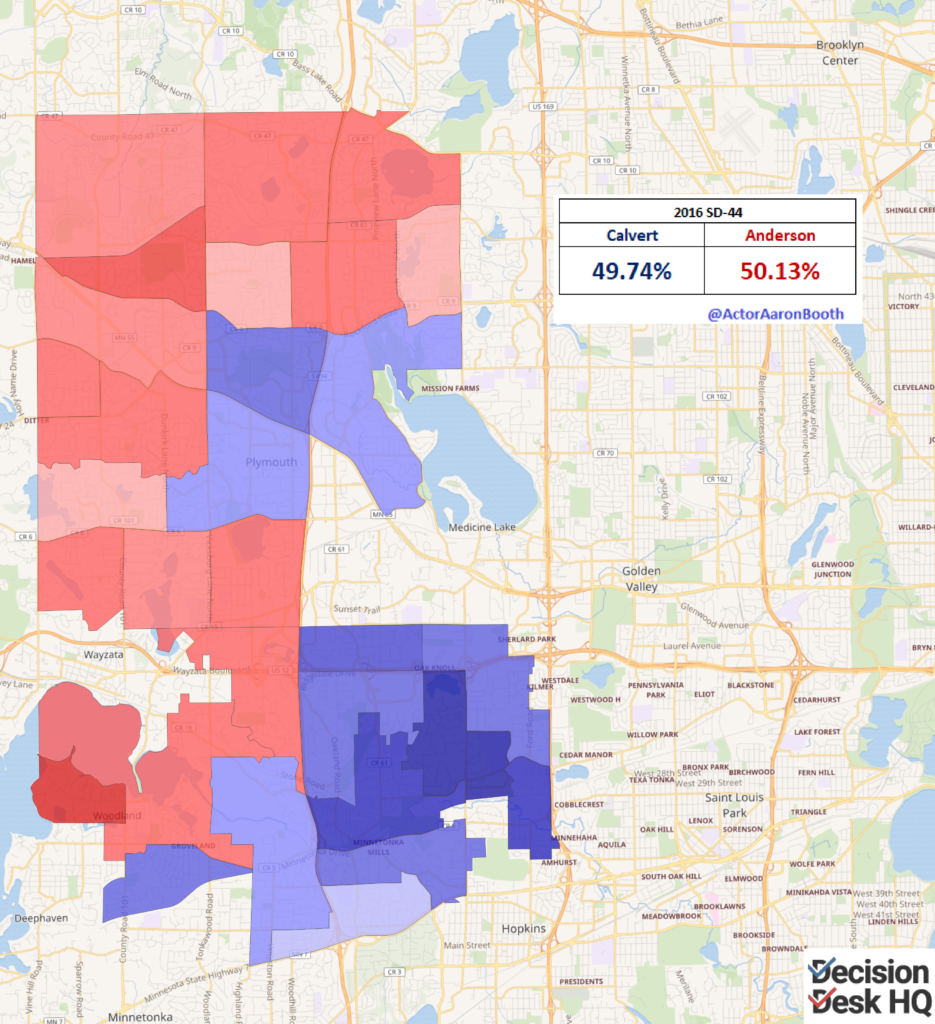
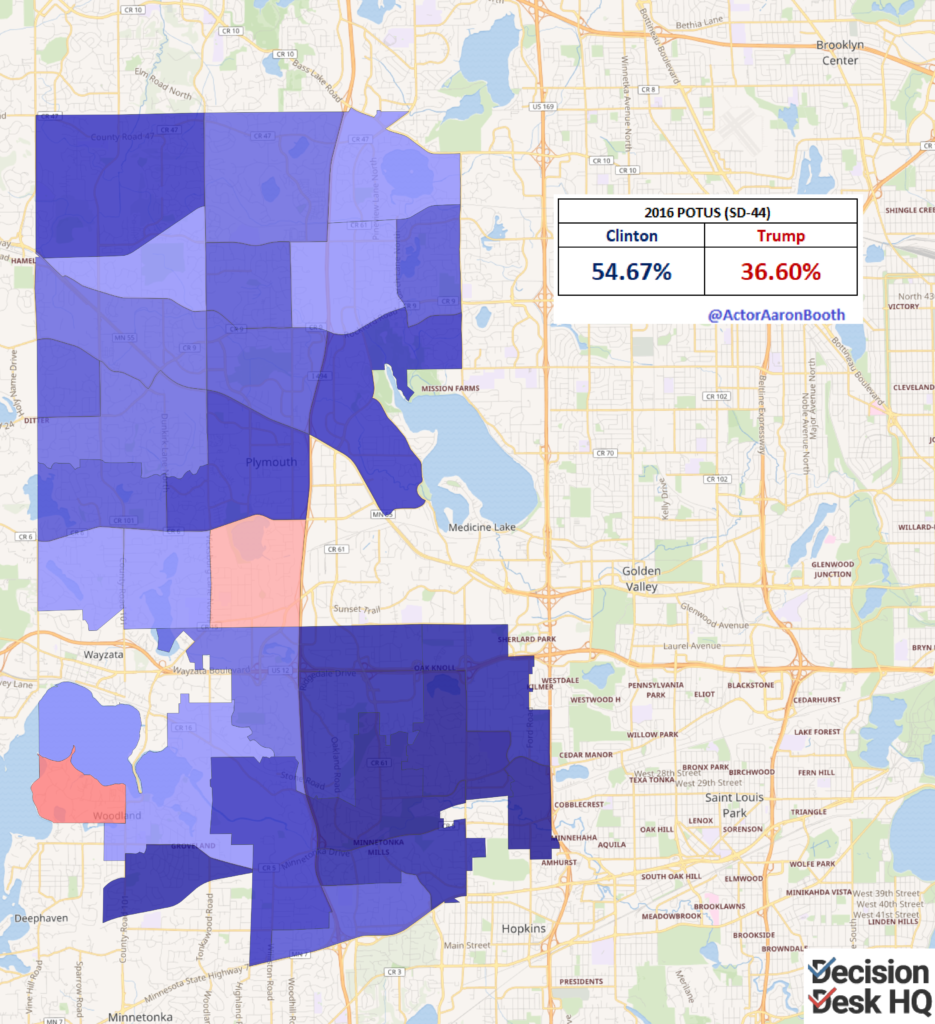
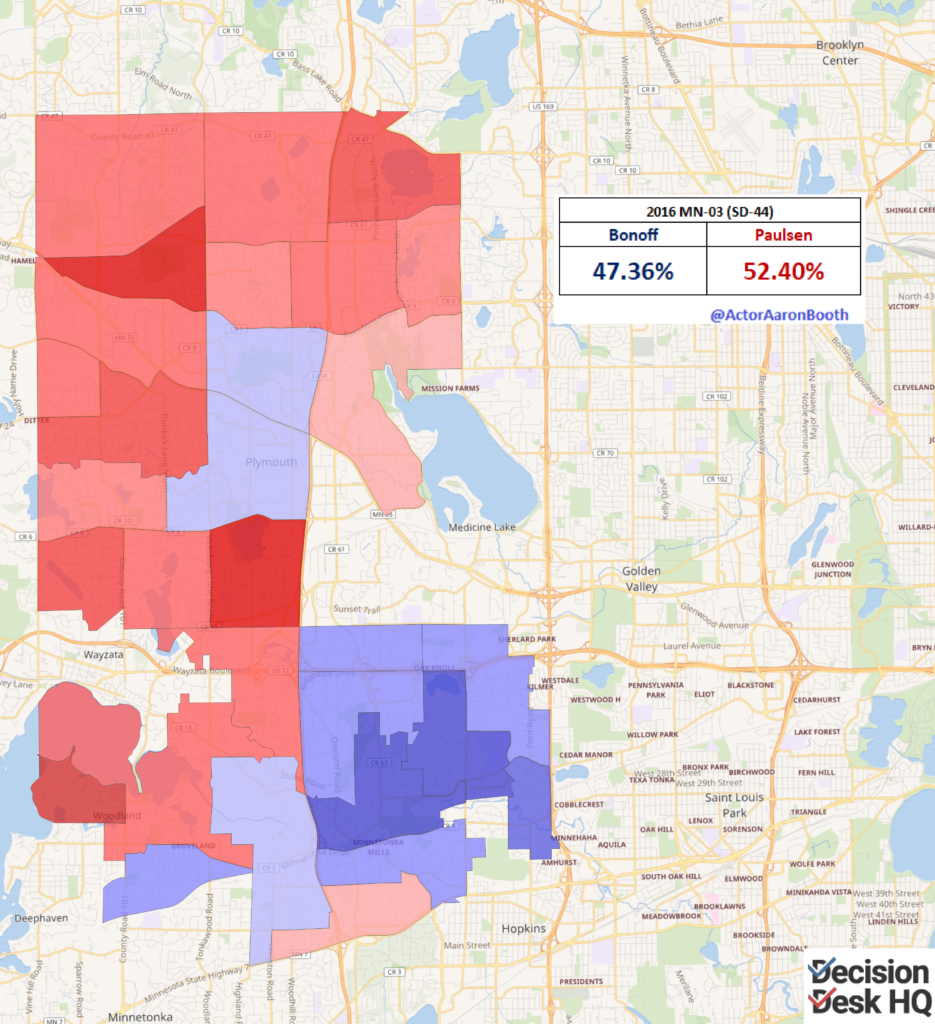
Minnesota currently possesses the only split state legislature in the nation. In 2020, that is expected to change as the DFL has a strong hold on the House that they flipped in 2018 and have a variety of paths to retaking the Senate. The bulk of those paths rely upon the suburbs. One district that the DFL has had its eye on is the 44th district which is contained within the Third Congressional District. This district was already at the top of the list for the DFL, but took a step farther when incumbent Senator Paul Anderson decided to retire after just one term in the legislature. While Anderson was likely already going to be an underdog, the DFL have now become significant favorites to win back this seat that Clinton carried by 18 points in 2016 while incumbent State Senator Terri Bonoff (who represented the district at the time in the Senate) was losing the 44th district to Paulsen whom she was challenging in the Congressional race.
The DFL nominee is Ann Johnson Stewart who had already raised nearly $91,000 (in addition to $18,000 raised in 2019) ahead of the pre-primary filing deadline in mid-July. At the time, she had spent $32,000 and had nearly $94,000 cash on hand. The Republican nominee is Greg Pulles who had raised $84,000, spent $28,000 and had nearly $56,000 cash on hand. The final pre-general election filing is due next week. Stewart has filed a public subsidy agreement and therefore can only spend $113,080 this cycle. Pulles has no such limit.
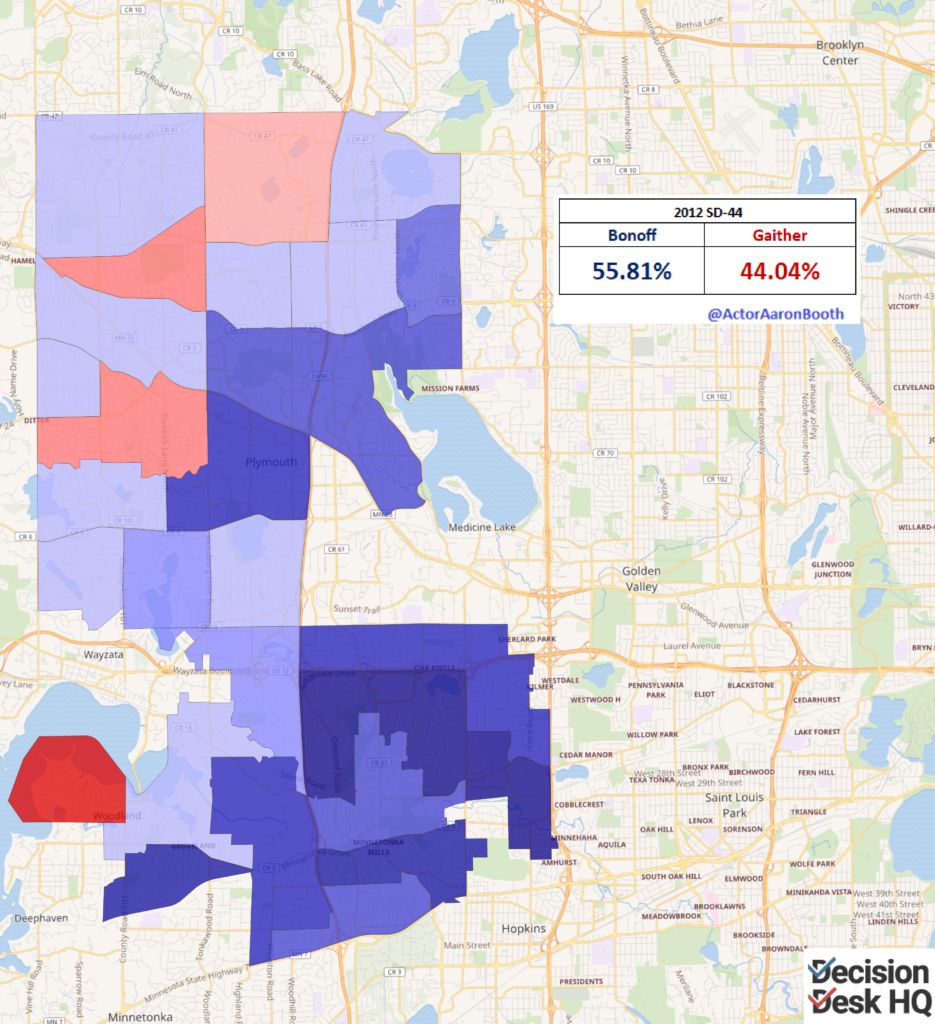
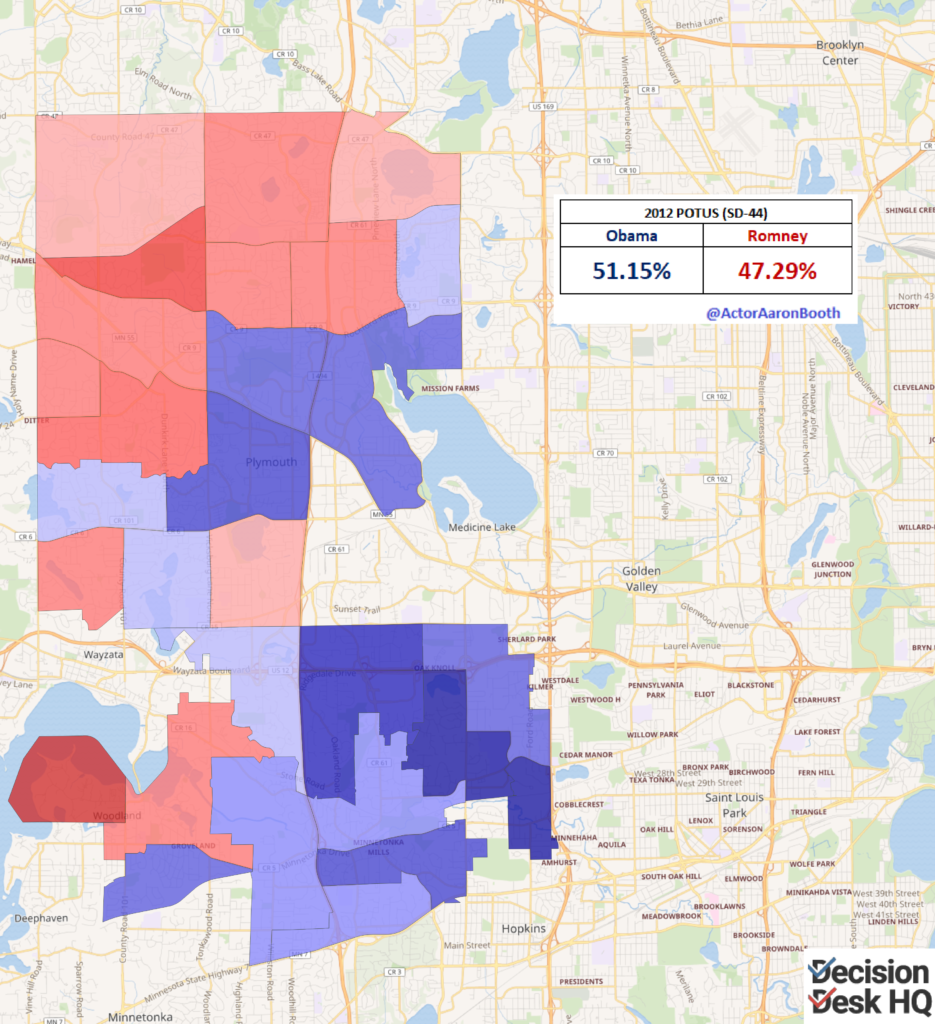
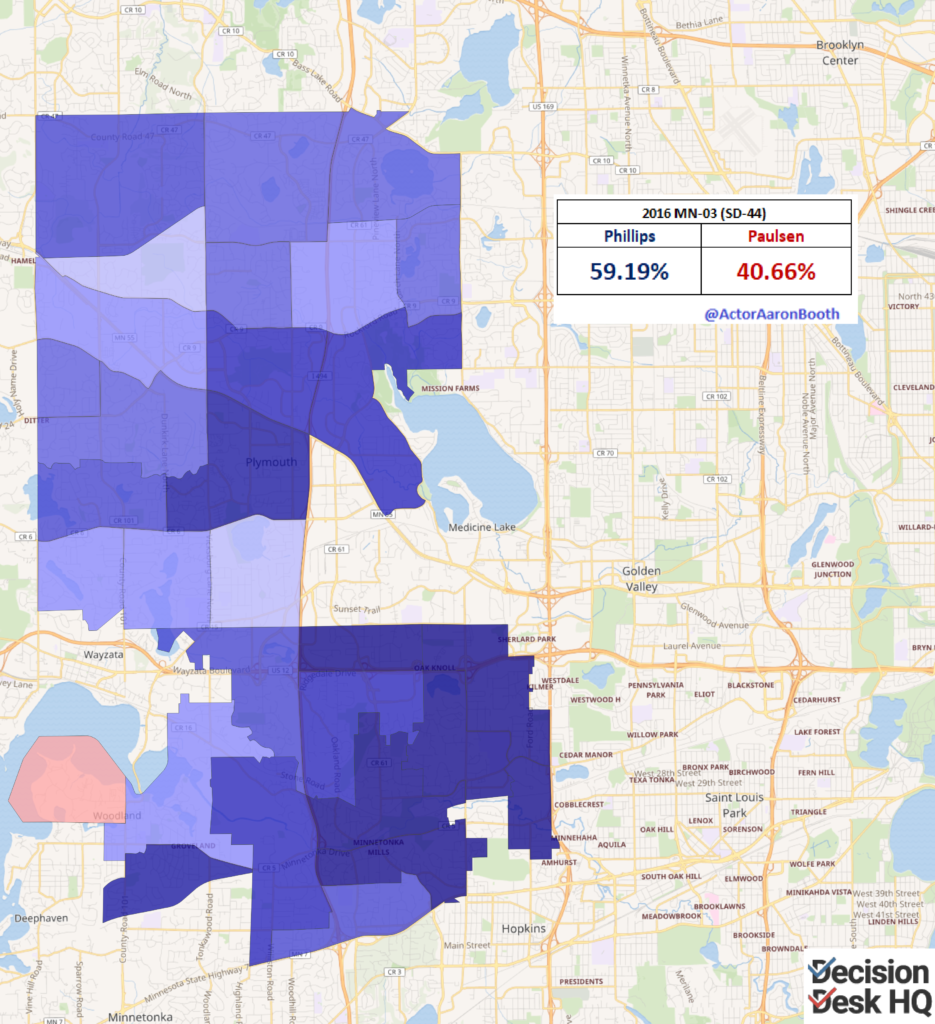
Bonoff was able to win the district in 2012 by nearly 12 points while Obama was only carrying it by 4 points. Her previous margin in such a key portion of the Congressional district in 2012 is part of what made her an appealing candidate to challenge Paulsen in 2016. It however took until 2018 when Donald Trump had taken office for Dean Phillips to unseat Paulsen. Phillips was able to carry the 44th by nearly 19 points while winning all but the Woodland precinct in the southwestern portion of the district. Phillips resides in the neighboring 33rd Senate district in Deephaven.
The 44th State Senate district as well as the 3rd Congressional district are considerably more college educated than the state as a whole. The 44th Senate district has roughly twice the percentage of residents with post-high school education compared to the state and the 3rd Congressional district has about a quarter more of those voters than the state. The 3rd district is the Congressional district in the state with the highest level of those with a bachelors degree and the 44th Senate district has the highest percentage residents with a bachelors degree among State Senate districts held by a Republican. These numbers make both of these districts difficult lifts for the Republican party in the era of Trump.
Why this matters
The 44th district is one of only two districts the DFL needs to flip (if they do not lose any districts that they currently hold). If they are able to flip the chamber, they will have a newfound trifecta of state government control. This will give them all important control of the redistricting process in the state which will have major implications for the next decade. In 2011, the state government was split between a Republican legislature and a DFL governor. With Governor Dayton unwilling to accept the Republican maps, the process was sent to the courts which wound up creating the maps currently in use. While court drawn maps wouldn’t be the end of the world for the DFL (DFL appointed judges dominate the judicial system here including having a 5-2 majority on the state supreme court), they would certainly prefer to be able to draw at least slightly more favorable maps. While they may be bound by their more moderate members from significantly gerrymandering the state, they could find a compromise that would satisfy members like Senator Kent Eken who has recently been breaking with the party and joining the GOP in voting to end Governor Walz’s emergency powers due to the coronavirus pandemic.
Aaron Booth (@ActorAaronBooth) is a contributor to Decision Desk HQ.